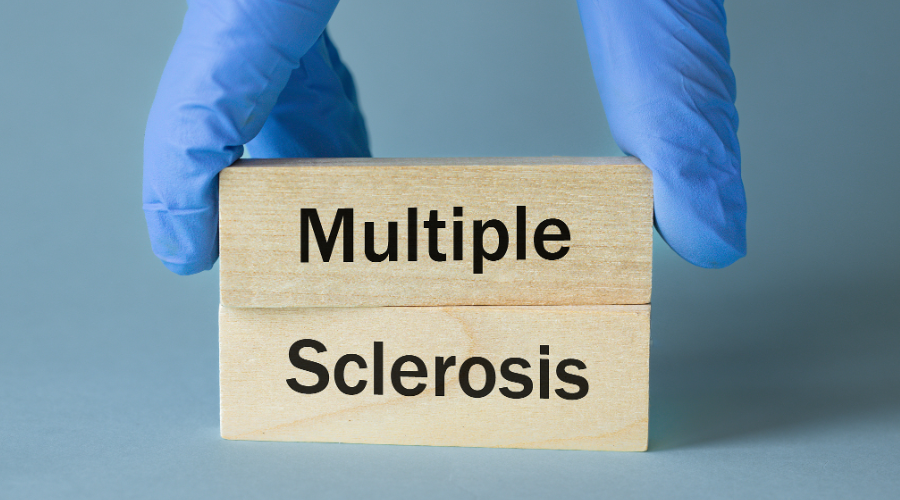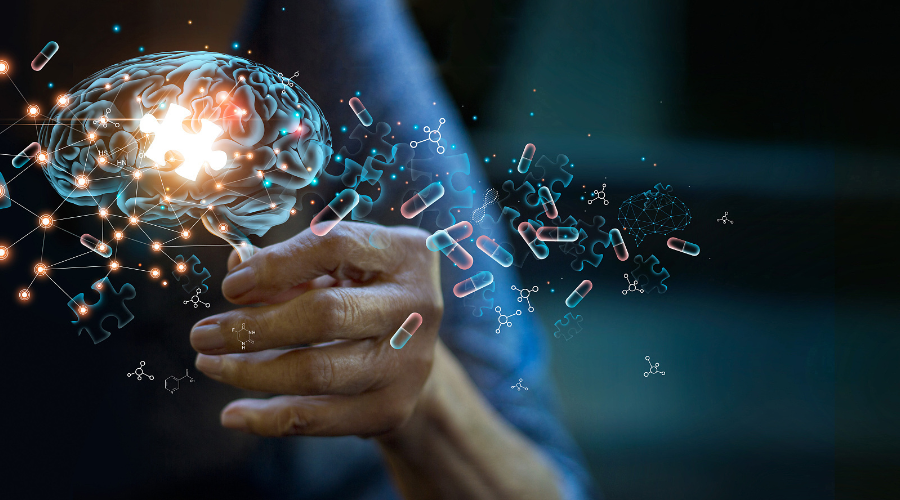
With the booming social and economic development, people's pace of life is increasingly accelerating, unhealthy eating habits such as high oil and sugar and lifestyle, such as frequent late nights, reliance on takeout, lack of exercise, are gradually becoming the norm. These factors not only affect people's health, but also lead to many people falling into a "sub-health" state, increasing the risk of chronic diseases.
In this context, regenerative medicine, as a cutting-edge medical research field, especially stem cells, which play a key role in tissue repair and regeneration, shows great potential and importance. According to Fortune Business Insights, the size of the global stem cell market has reached $15.07 billion in 2023 and is expected to grow at a compound annual growth rate of 16.1% from 2024 to reach $56.15 billion by 2032.
Advances in stem cell therapy offer new hope for the treatment of multiple systems and chronic diseases. These diseases include, but are not limited to, diseases of the blood system, nervous system, cardiovascular, metabolic and musculoskeletal diseases. The multidirectional differentiation potential, immunomodulatory properties and the role of stem cells in tissue repair make them an important direction for future medical research and treatment.
Diseases of blood system
Hematopoietic stem cell transplantation (HSCT) is the earliest stem cell technology used in clinic to treat blood system diseases. The basic research of hematopoietic stem cells began in the 1940s, the first human hematopoietic stem cell transplantation was carried out in the 1950s, the time to establish HLA identification and matching technology system was in the 1960s, and the hematopoietic stem cell technology was basically mature in the 1970s. At present, there are still technological innovations in this field, including the theory of "semi-compatible transplantation" proposed by Chinese scholars, which further reduces the threshold of successful matching and expands the scope of application of hematopoietic stem cells.
"Semi-compatible transplantation" is a hematopoietic stem cell transplantation technique that breaks the limitation of traditional transplantation requiring an exact match of human leukocyte antigen (HLA) between donor and recipient. This technique allows transplants to be performed using donors who are not perfectly matched, usually half-matched between relatives, such as between parents and children or siblings. The proposed theory is of great significance for solving the problem of insufficient hematopoietic stem cell donors.
In March 2024, the hematology Department of Fengxian District Central Hospital successfully performed autologous hematopoietic stem cell transplantation for Mr. Wang, 54, who was suffering from multiple myeloma, and was officially discharged in April. This is the second successful autologous hematopoietic stem cell transplantation of multiple myeloma patients in the Department of Hematology of the hospital after the elderly multiple myeloma secondary plasmacytic leukemia patient in September 2023.
On April 30, 2024, the team of professors Lei Zhang and Renchi Yang of the Hospital of Hematology, Chinese Academy of Medical Sciences (Institute of Hematology, Chinese Academy of Medical Sciences), for the first time in the world, prospective evaluated the efficacy and safety of umbilical cord mesenchymal stem cells in the treatment of refractory immune thrombocytopenia (ITP). The results showed that the effective rate of ITP treatment with umbilical cord mesenchymal stem cells was 41.7% and 50.0%, respectively, and the total effective rate was 44.4%. The study further demonstrated that umbilical cord mesenchymal stem cells are effective and safe in the treatment of refractory ITP, providing a new scheme for the treatment of ITP.
Nervous system disease
To date, there are more than 200 registered clinical studies of stem cells for the treatment of neurological diseases worldwide. Most of these studies are in early stages, such as Phase I and Phase II clinical trials, which focus on the safety and initial efficacy of the treatment. Preliminary results show that stem cell therapy is safe and well tolerated by patients.
In May 2024, Tisch in New York, one of the world's largest multiple sclerosis research centers, announced the results of the latest phase II clinical treatment. The study used neural progenitors derived from autologous bone marrow mesenchymal stem cells (MSCS) (MSC-NP) to treat multiple sclerosis patients with the progressive disease. After the stem cell treatment, the patient had significant changes in various biomarkers, and walking ability and bladder function were significantly improved.

On January 26, 2024, the project of "Clinical Research on the Treatment of moderate and severe Parkinson's Disease by Clinical iPSC-derived Dopaminergic neural precursor Cells" jointly carried out by Shize Biomedical (Suzhou) Co., Ltd. and Shanghai Oriental Hospital was approved by the National Health Commission and the State Food and Drug Administration to carry out the national stem cell filing clinical research (MR-31-24-001927).
On May 10, 2024, the team of Prof. Wang Renzhi, Prof. Bao Xinjie, and Prof. Wan Xinhua, Department of Neurology, Peking Union Medical College Hospital, published a report in the Journal of Neurology, Neurosurgery and Psychiatry (Impact factors: 11.1, Q1/TOP) published an article entitled "A Phase I single-center open label dose-increasing clinical Study Evaluating the safety and initial efficacy of human neural stem cells (ANGE-S003) in the treatment of Parkinson's disease through transnasal mucosal transplantation". This is the world's first clinical study using human-derived neural stem cells to treat Parkinson's disease through the transnasal mucosal pathway.

In July 2024, at the 2024 Annual Meeting of the Society of Peripheral Neurology (PNS), ENCell Corporation of South Korea announced promising results from a Phase I clinical trial of its novel mesenchymal stem cell therapy (EN001) for Charcot-maryoatrophy type 1A (CMT1A). EN001 migrates and regenerates damaged nerves and muscles.
Charcot-Marie-Tooth disease (CMT) is a group of common monogenetic disorders involving peripheral nerves, affecting about 1 in 2500 people. CMT1A is the most common subtype of CMT, accounting for about 50% of confirmed cases. At present, it is believed that the disease of CMT1A is caused by repeated mutations of peripheral myelin protein 22 gene, which leads to the disorder of gene expression regulation mechanism, and the dysfunction of NRG1/ErbB pathway, lipid metabolism and other factors jointly affect the myelination of Schwann cells. At present, symptomatic support is the main treatment for CMT1A patients.
Diseases of cardiovascular system
Cardiovascular disease is one of the major problems harming human health. Research shows that stem cells, especially umbilical cord mesenchymal stem cells, have the ability to repair myocardial tissue and improve cardiac function, and can secrete hepatocyte growth factor, participate in cardiac protection and cardiovascular regeneration, and can be used to improve a variety of ischemic heart diseases. Such as arrhythmia, angina pectoris, myocardial infarction, heart failure and so on.
In April 2024, Professor Hideki Kobayashi of Shinshu University published an article in Circulation, a leading academic journal in the international cardiovascular field. Using induced pluripotent stem cells (iPSCs), the team created "heart spheres" that reach damaged parts of the heart more efficiently and significantly reduce the risk of arrhythmia. This breakthrough significantly improves the traditional heart regeneration treatment and provides a new direction for the treatment of heart disease.
Metabolic disease
Stem cell therapy for metabolic diseases, especially diabetes, has made remarkable progress in recent years.
On April 30, 2024, Professor Yin Hao's team from the Second Affiliated Hospital of Naval Medical University (Shanghai Changzheng Hospital) and Professor Cheng Xin's team from the Center of Excellence and Innovation for Molecular and Cell Science of the Chinese Academy of Sciences published an article in the authoritative journal Cell Discovery (CAS Region 1, IF=33.5). This study is the first international report of the use of endodermal stem cell-derived islet tissue for human tissue replacement therapy in patients with type 2 diabetes with impaired islet function. The patient has been completely off insulin for 33 months.
On May 1, 2024, Deng Hongkui and Li Cheng of Peking University and Du Yuanyuan of Hangzhou Institute of Medical Research of Chinese Academy of Sciences published an article in Cell Stem Cell, which analyzed the functional maturation process of insulin secretion cells (islet beta cells) derived from human pluripotent stem cells, and expounded the regulatory model of islet beta cell functional maturation. On this basis, by targeting factors that regulate islet beta cell maturation, the research team predicted a library of small molecule compounds, and after screening, found that the HDAC inhibitor TH34 effectively promoted the functional maturation of islet beta cells in vitro.
On June 21, 2024, new data from the Phase I/II prospective clinical study of VX-880, an iPSC stem-cell derived therapy pioneered by Professor Douglas Melton, director of the Harvard Stem Cell Institute, were released: Nearly all patients treated showed significant improvements in blood sugar. VX-880 is an allostem-derived, fully differentiated, insulin-producing islet cell therapy, essentially iPSC (induced pluripotent stem cells) induced differentiation of islet beta cells in vitro, for patients with type 1 diabetes with severe hypoglycemic events and with hypoglycemic awareness disorders.
Musculoskeletal disease
Stem cell therapy has wide application prospect in musculoskeletal diseases.
In April 2023, the Phase III clinical trial of "AlloJoin® for human adipose-derived mesenchymal progenitor cell Injection" was officially launched. Preliminary results from the completed randomized, double-blind, controlled, multicenter Phase II trial (96 weeks of follow-up) indicate that AlloJion® has a relatively good safety and efficacy profile in the treatment of knee osteoarthritis.
In September 2023, IxCell hUC-MSC-O, a mesenchymal stem cell product for primary knee osteoarthritis, was officially launched into Phase III clinical trials (batch number: CXSL1900016).
Other diseases
In addition to the above systems, stem cells also have broad application prospects in respiratory diseases (such as novel coronavirus pneumonia), skin-related diseases (such as burns, psoriasis), and cosmetic anti-aging (such as combating photoaging, improving premature ovarian failure in women, and improving erectile dysfunction in men). In addition, stem cell-based organoid technology can simulate patient organs to help find suitable drugs and achieve personalized treatment.
Sum up
The potential of stem cell therapy is being gradually tapped with the deepening of scientific research and technological innovation. In the future, as our understanding of stem cell properties and regulatory mechanisms deepens, as well as advances in gene editing and tissue engineering technologies, stem cells are expected to play an important role in a wide range of health fields.